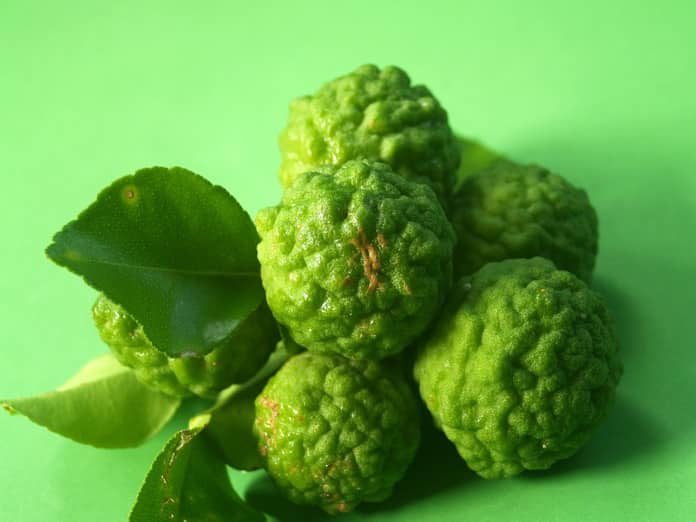A recent exploratory study determined if supplementation of Citrus bergamia extract benefits older adults with dyslipidemia and obesity.
Dyslipidemia refers to abnormal levels of triglycerides, cholesterol, or fat phospholipids in the blood. Being overweight with an elevated lipid profile is a major risk factor for cardiovascular diseases. Dyslipidemia causes vascular injury due to inflammation and oxidative stress. Treatments targeted at normalizing cholesterol, triglycerides, and low-density lipoprotein cholesterol (LDL-C) work by inhibiting cholesterol biosynthesis as well as by reducing vascular damage, improving repair systems, and restoring vascular health.
Statins are the most commonly used drugs for dyslipidemia. However, in some people with high blood pressure and high blood glucose, treatment with statins is not sufficient to normalize the lipid profile. Additionally, statins have also been associated with side effects such as muscle weakness, damage of skeletal muscle, and liver problems. Therefore, there is a need for an alternative treatment approach for dyslipidemia.
Non-pharmacological Nutritional Treatment
Nutritional treatments or supplements are slowly proving to be an effective and safe way to manage many diseases. Not only are the nutritional supplements better tolerated with little or no side effects, a single intervention can often target more than one disease.
Several studies on the nutritional treatment of dyslipidemia have shown improvements in blood lipid profiles and a reduction in inflammation and oxidative stress. Among the more promising nutritional supplements is Citrus bergamia, also known as bergamot. It is a citrus fruit that grows well in China and Calabria, Italy. Bergamots are a rich source of flavonoids that have been shown to lower blood lipid levels and possess anti-inflammatory and anti-oxidative properties.
A recent exploratory study published in Lipids in Health and Disease evaluated the safety and effectiveness of supplementation of Citrus bergamia extract on the cholesterol levels of older adults with high blood pressure and blood glucose. The study, conducted in Shanghai, China, recruited 98 male and female participants with an average age of 65 years. All of the participants had elevated levels of blood lipids at the start of the study.
The participants were randomly assigned to either the test or placebo groups. The test group received a CitriCholess formulation containing Citrus bergamia juice extract (500mg/daily). The placebo group received capsules with only vegetable oil. The trial was double-blinded since neither the participants nor the investigators were aware of the assigned treatments. The participants underwent physical examinations and blood analysis to determine their blood concentrations of total cholesterol, triglycerides, low-density lipoprotein cholesterol (LDL-C), high-density lipoprotein cholesterol (HDL-C), and fasting glucose. The participants were also evaluated for body weight, waist and hip circumference, waist-to-hip ratio, and body mass index (BMI) at the beginning of the trial as well as after the 12-week follow-up period.
The Effects of Citrus bergamia Supplementation
The results showed that supplementation with CitriCholess for 12 weeks led to a reduction in the blood levels of total cholesterol, triglycerides, and LDL-C compared with the placebo group. The researchers also observed a reduction in body weight, waist circumference, and BMI in the participants given CitriCholess compared to the participants in the placebo group.
Evidence from Past Studies
There have been many animal studies done in the past few years that show the lipid-reducing effects of bergamot. A few clinical studies in recent years have evaluated the effects of bergamot in humans. These studies showed beneficial effects of bergamot in the treatment of dyslipidemia and in the reduction of blood glucose.
Bergamot: Mechanism of Action
It is not fully understood how bergamot helps reduce cholesterol and lipids in blood. It is possible that the flavonoids buteridine, naringin, and melitidine, present in bergamot juice extract, inhibit the enzymes involved in cholesterol synthesis. These flavonoids may also bind to bile acids and increase the turnover rate of blood and liver cholesterol, thus reducing triglyceride accumulation in the liver.
Additionally, bergamot flavonoids could reduce hepatic triglyceride accumulation by inhibiting enzymes involved in triglyceride synthesis. The effect of bergamot in reducing glucose is probably due to the ability of flavonoids to increase glucose uptake in liver and muscles as well as increase insulin sensitivity and glucose tolerance.
The results of the study are promising, but the authors express the need for further studies to validate these findings. Two major limitations of the study are a small number of participants and a short follow up period. The dose of CitriCholess used was also low compared with past studies.
In conclusion, the study results confirm the effect of Citrus bergamia in reducing blood cholesterol, triglycerides, LDL-C, glucose, waist circumference, body weight, and BMI in older adults. Nutritional treatment with Citrus bergamia fruit extract may be beneficial for people with dyslipidemia and help in weight management of older adults.
Written by Preeti Paul, MS Biochemistry
Reference: Yong Cai et al., Effects of 12-week supplementation of Citrus bergamia extracts-based formulation CitriCholess on cholesterol and body weight in older adults with dyslipidemia: a randomized, double-blind, placebo-controlled trial. BioMed Central, Lipids in Health and Disease (2017) 16:251



